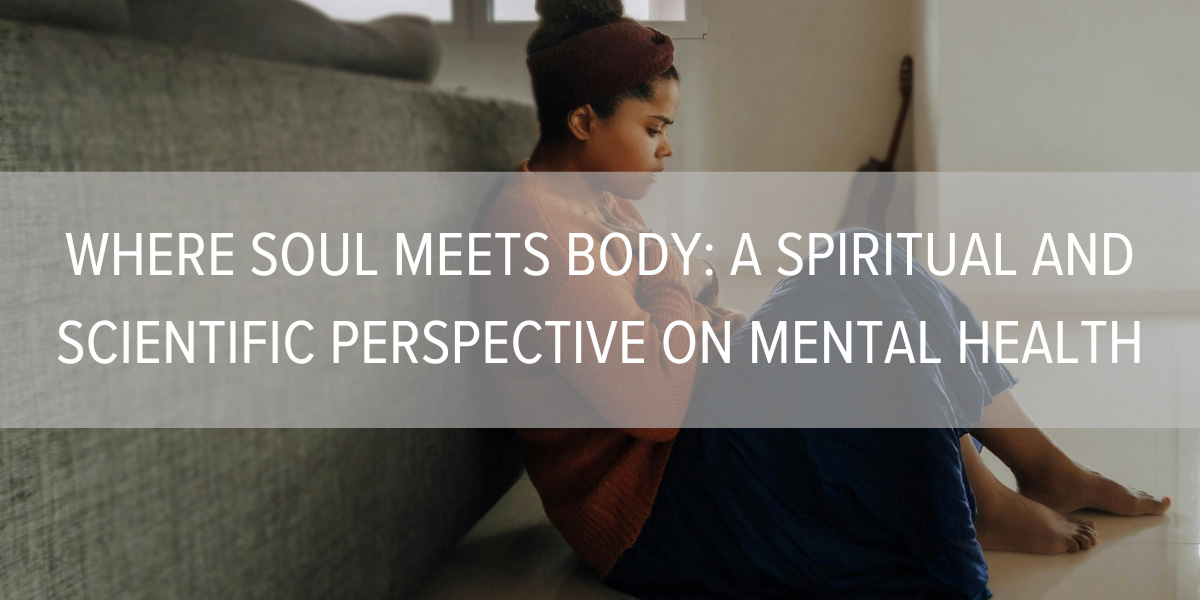The local church can play a pivotal role in mental health care by providing a community of support, reducing stigma, and promoting understanding.
The Reality of Mental Health Challenges
May is Mental Health Awareness Month, and according to the CDC, one in five adults in the U.S. experiences mental illness each year. Mental health issues are widespread across all demographics, including faith communities. Yet despite its prevalence, a stigma associated with mental health often exists – particularly in the church, where a close relationship with God is viewed as a safeguard against such struggles. Thankfully, the conversation around mental health has grown in recent years, along with the Church’s increasing recognition of its importance. With its extensive reach and influence, the global and local Body of Christ has a unique role in addressing mental health from a biblical perspective.
Biblical Insights on Mental Health
Contrary to the firmly-held beliefs of the Church of the past, the Bible does not ignore the reality of mental and emotional distress. Throughout scripture, we find several accounts of people who loved God, followed Him wholeheartedly, and experienced deep emotional pain. King David, a man after God’s own heart, openly expressed his feelings of despair and depression in many Psalms (Read Psalm 6, Psalm 13, Psalm 22, Psalm 31, Psalm 38, Psalm 42, and Psalm 143). Similarly, the prophet Elijah, immediately after his triumphant victory over the false prophets of Baal, felt overwhelmed and isolated to the point of wishing for death (1 Kings 19:4). Hannah, after grappling with years of infertility, dealt with such deep depression that she wept bitterly and would not eat (1 Samuel 1:7). These examples reflect that experiencing emotional turmoil is part of human existence because life is filled with pain, regardless of our standing with God. The Bible doesn’t hide them, but instead highlights them.
Mental health is a core aspect of our lives and affects our emotional, psychological, and social well-being. Mental health issues can make us feel like drawing away from biblical community, when biblical community is what we need the most. The biblical approach to mental health is holistic. 3 John 1:2 highlights this perspective: “Beloved, I pray that all may go well with you and that you may be in good health, as it goes well with your soul.” This verse underlines the interconnectedness of physical and mental health with spiritual well-being, suggesting a comprehensive approach to health that includes mental health care.
The Church’s Role in Supporting Mental Health
The local church can play a pivotal role in mental health care by providing a community of support, reducing stigma, and promoting understanding. Healthy and holistic Christ-centered churches now aim to build the infrastructure to offer support groups, counseling services, and education that can address mental health issues from a biblical, faith-based perspective. The church can help its members find healing and support by integrating up-to-date science with biblical care.
For example, many churches now partner with mental health professionals and non-profit ministries to offer counseling. This collaboration can provide a dual approach to therapy, which respects the individual’s spiritual life while addressing mental health through scientifically proven methods.
Scientific Facts and Mental Health Care
Scientific research has shown that practices often encouraged within the church, such as prayer and community involvement, can positively affect mental health. A study published in the Journal of Psychology and Theology found that prayer can help reduce symptoms of anxiety and depression. Community involvement, a staple in church life, has been linked with reduced rates of loneliness and depression, according to research from the American Journal of Epidemiology.
Furthermore, the spiritual discipline of forgiveness (Matthew 6:14-15, Luke 17:3-4, Ephesians 4:31-32, Colossians 3:13) profoundly impacts mental health outcomes. Studies have found that forgiveness can reduce stress, which lowers the risk of both physical and mental health issues.
Challenges and Moving Forward
Despite these benefits, there are challenges in addressing mental health within the church. Misunderstandings and stigma about mental illness can lead to judgments, or the misguided belief that faith alone can cure mental health problems without the need for professional intervention. That stigma can discourage those who suffer in silence from stepping out of the darkness and seeking the help they so desperately need. Church leaders must continue to educate themselves and their congregations about mental health to combat these misconceptions effectively.
Conclusion
The Church holds a significant place at the intersection of faith and mental health. By embracing biblical insights and scientific facts, the church can offer a refuge for those struggling, promoting a message of hope and holistic care. Mental health care is a matter of discipleship that Bethlehem Church takes very seriously as we seek to lead people to discover new life in Christ and the abundance it encompasses for the Christ-follower – body, mind, spirit, and soul. As the conversation around mental health continues to evolve, the church will grow, too, ensuring it remains a source of hope and support that recognizes the complex nature of mental health in the light of faith and science, while proclaiming the Hope of the Gospel and providing a safe community in which to grow and heal. This balanced approach aligns with biblical teachings and promotes healthier, more resilient Christ-followers.







0 Comments